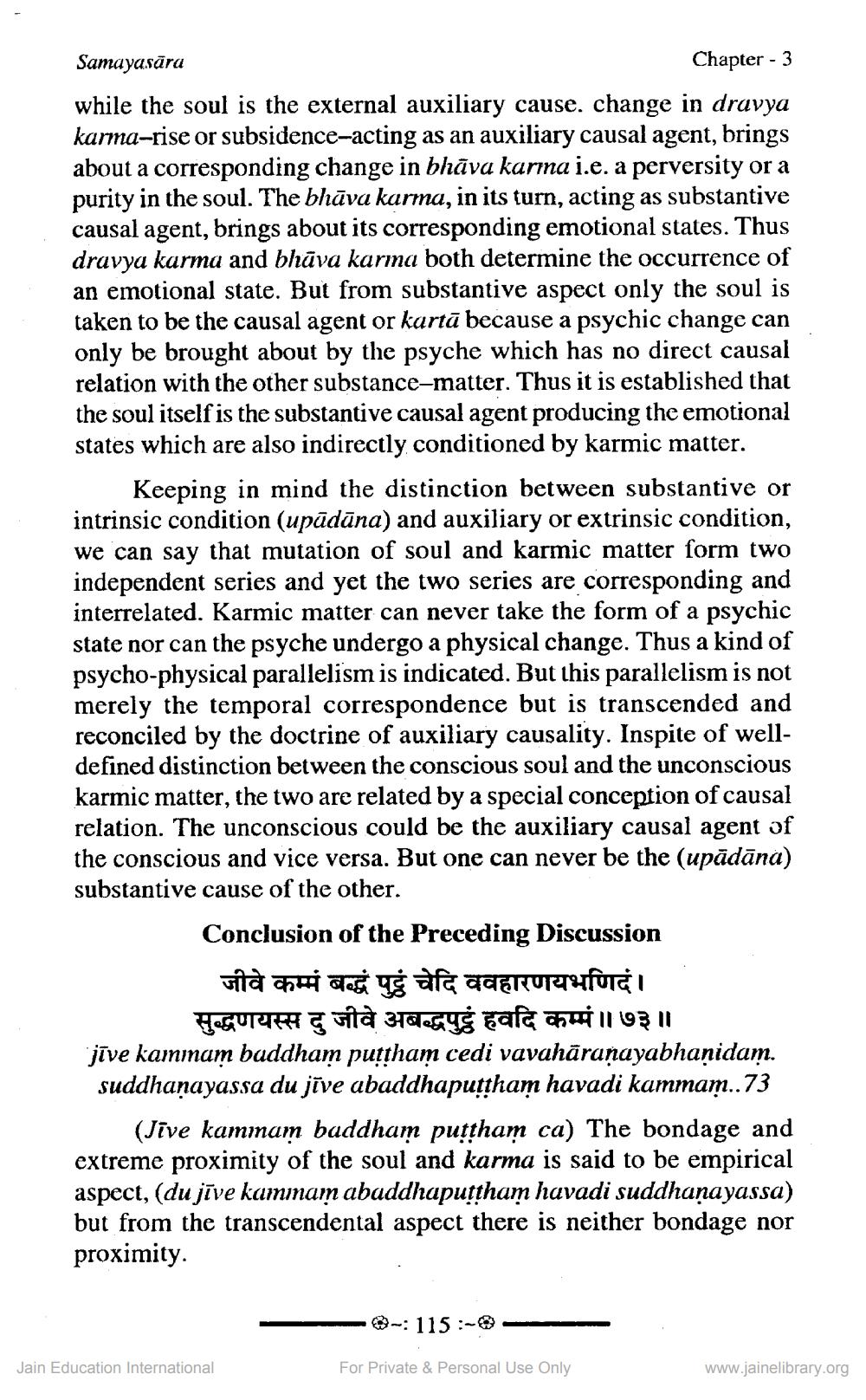________________
Samayasāra
Chapter - 3
while the soul is the external auxiliary cause. change in dravya karma-rise or subsidence-acting as an auxiliary causal agent, brings about a corresponding change in bhāva karma i.e. a perversity or a purity in the soul. The bhāva karma, in its turn, acting as substantive causal agent, brings about its corresponding emotional states. Thus dravya karma and bhāva karma both determine the occurrence of an emotional state. But from substantive aspect only the soul is taken to be the causal agent or kartā because a psychic change can only be brought about by the psyche which has no direct causal relation with the other substance-matter. Thus it is established that the soul itself is the substantive causal agent producing the emotional states which are also indirectly conditioned by karmic matter.
Keeping in mind the distinction between substantive or intrinsic condition (upādāna) and auxiliary or extrinsic condition, we can say that mutation of soul and karmic matter form two independent series and yet the two series are corresponding and interrelated. Karmic matter can never take the form of a psychic state nor can the psyche undergo a physical change. Thus a kind of psycho-physical parallelism is indicated. But this parallelism is not merely the temporal correspondence but is transcended and reconciled by the doctrine of auxiliary causality. Inspite of welldefined distinction between the conscious soul and the unconscious karmic matter, the two are related by a special conception of causal relation. The unconscious could be the auxiliary causal agent of the conscious and vice versa. But one can never be the (upādāna) substantive cause of the other.
Conclusion of the Preceding Discussion
जीवे कम्पं बद्धं पुढं चेदि ववहारणयभणिदं । सुद्धणयस्स दु जीवे अबद्धपुट्ठे हवदि कम्मं ॥ ७३ ॥ jīve kammam baddham puttham cedi vavahāraṇayabhaṇidam. suddhanayassa du jive abaddhaputtham havadi kammam..73
(Jive kammam baddham puttham ca) The bondage and extreme proximity of the soul and karma is said to be empirical aspect, (du jīve kammam abaddhaputtham havadi suddhaṇayassa) but from the transcendental aspect there is neither bondage nor proximity.
Jain Education International
-115-0
For Private & Personal Use Only
www.jainelibrary.org




